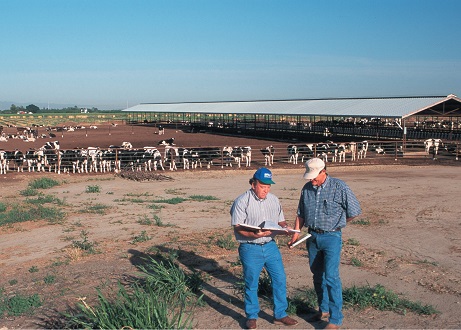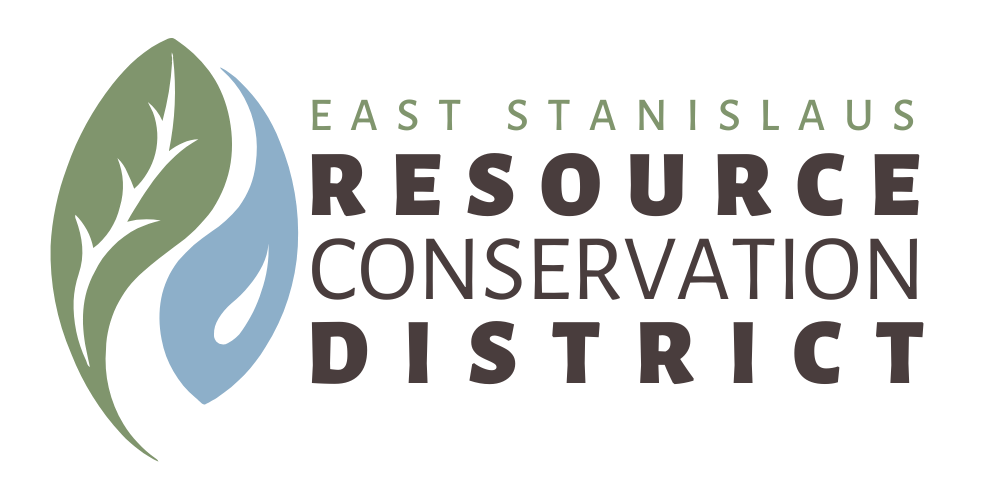We Work With Farmers Like You...
We provide programs and services in conservation planning, financial assistance, and technical resources for farmers, ranchers, and landowners. All programs are voluntary and designed with the help of a conservation planner to meet your operational goals and comply with environmental regulations. Visit the NRCS website for more information about additional programs!
To Provide Conservation Planning, Financial & Technical Assistance

Conservation Planning
We can assist in putting together a conservation plan specific to your operation that outlines the use and best management practices of natural resources on private or public property. Usually consisting of maps, soils information, resource inventory, and related information, the plan lays out resource conservation in a straightforward manner. A conservation plan can also make your farm more productive and keep it viable. Most importantly, it is your decision what goes into the plan.
Conservation Stewardship Program: Available on tribal and private agricultural lands and non-industrial private forest land, CSP is a voluntary conservation program that encourages producers to address resource concerns by undertaking additional conservation activities, and improving upon existing conservation activities. Examples include using high-residue cover crops, precision application technology for nutrient application, planting firebreaks, and mulching.
Conservation Reserve Program: Pays a yearly rental payment in exchange for farmers removing environmentally sensitive land from agricultural production and planting species that will improve environmental quality.
Conservation of Private Grazing Land: Ensures that technical, educational, and related assistance is provided to those who own private grazing lands. It is not a cost share program. This technical assistance offers opportunities for: better grazing land management; protecting soil from erosive wind and water; using more energy-efficient ways to produce food and fiber; conserving water; providing habitat for wildlife; sustaining forage and grazing plants; using plants to sequester greenhouse gases and increase soil organic matter; and using grazing lands as a source of biomass energy and raw materials for industrial products.
Agricultural Conservation Easement Program: provides financial and technical assistance to help conserve agricultural lands and wetlands and their related benefits. Under the Agricultural Land Easements component, the program helps Indian tribes, state and local governments and non-governmental organizations protect working agricultural lands and limit non-agricultural uses of the land.
Financial Assistance
Financial assistance is largely available through state, federal, and private grants the RCD receives. Assistance may be provided for approved project design and implementation, or as rebates for completed projects that meet conservation standards. In addition, through the NRCS, our partner agency, specific financial programs are available:
Environmental Quality Incentives Program: The EQIP program provides financial and technical assistance to agricultural producers in order to address natural resource concerns and deliver environmental benefits such as improved water and air quality, conserved ground and surface water, reduced soil erosion and sedimentation or improved or created wildlife habitat. Payments are made to participants after conservation practices and activities identified in an EQIP plan of operations are implemented. Contracts can last up to ten years in duration.
Conservation Stewardship Program: helps agricultural producers maintain and improve their existing conservation systems and adopt additional conservation activities to address priority resources concerns. Participants earn payments for conservation performance—the higher the performance, the higher the payment.
Conservation Innovation Grants: a voluntary program for Non-federal, Private, and Tribal organizations, intended to stimulate development and adoption of innovative conservation approaches and technologies while leveraging Federal investment in environmental enhancement and protection, in conjunction with agricultural production.
Technical Assistance
Comprehensive Nutrient Management Plans: A voluntary program for livestock operations that aids in dealing with concerns related to manure and organic by-products and their potential impacts on water quality. A comprehensive plan is designed to help livestock operation owners comply with waste management regulations. The plan addresses manure and wastewater storage and treatment, land treatment practices, and managing application rates of waste on cropland.
Conservation Technical Assistance: The CTA is available through the Farm Service Agency and provides land users with proven conservation technology and the delivery system needed to achieve the benefits of a healthy and productive landscape. The goals are to solve soil, water quality, water conservation, air quality and agricultural waste management problems while improving the long-term sustainability of all lands.
Mobile Irrigation Labs: We can do an on-site evaluation of your irrigation system, including assessing distribution uniformity, pressures, and application and flow rates to provide site-specific recommendations for system improvements and best management practices.
